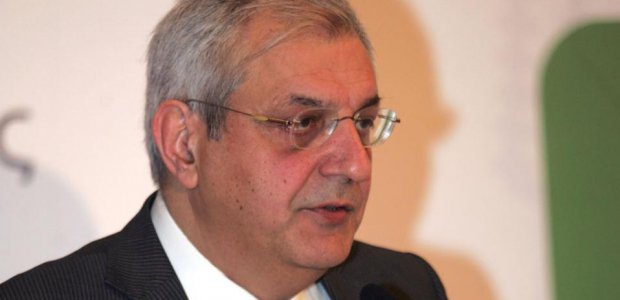The country’s energy networks represent strategic infrastructure and must remain under the Greek State’s control, Nikos Hatziargyriou, president and CEO of HEDNO, the Hellenic Electricity Distribution Network Operator, notes in an article appearing in Greek Energy 2017, an annual energypress industry publication.
HEDNO is closely following the bailout-related developments at the main power utility PPC, which owns the system’s distribution network assets and funds the operator’s projects, Hatziargyriou points out. PPC is needs to adapt to bailout terms requiring a contraction of its electricity retail market share and sale of production units.
“HEDNO is solely responsible for the development, maintenance and operation of the electricity distribution network throughout Greece, including the islands. The main objective is to ensure uninterruped electricity supply to 7.4 million consumers throughout the country. The operator’s objective is [to provide] the best possible combination of quality service and low operating costs with considerable contribution to environmental protection,” notes Hatziargyriou in his article for Greek Energy 2017. “Therefore, the company is at the frontline, in direct contact with all of the citizens of the country, and playing a key role in their interconnection with the grid, repairing its faults, and properly measuring consumption,amongst other tasks,” he adds.
In recent years, HEDNO has operated amid extremely difficult conditions, which have presented greater demands and restrictions, while new roles are required by the constantly changing energy market, the operator’s head official notes. Tightened finances caused by wider cash flow problems and bailout terms imposed over recent years represent a major challenge for the operator, Hatziargyriou notes. Even so, HEDNO has managed to successfully perform tasks, resolve older issues, relauch plans for the development of stalled projects, and generally improve its performance, the head official stresses in his Greek Energy 2017 article.
More work is needed, including for the adaption to major European revisions introduced for cleaner energy and greater renewable energy market penetration, as is detailed in the recent winter packge, presenting EU directives for the continent’s new energy plan. The role to be played by distribution network operators in this overall effort is crucial, the HEDNO chief notes.
HEDNO’s development plan includes a core of twelve strategic investments budgeted at 1.25 billion euros, until 2020. These include an update of networks and infrastructure as well as the introduction of modern customer services to be supported by innovative technologies and information systems.
The development of strategic energy sector projects in the present and near future will help support Greece’s effort towards economic recovery, Hatziargyriou notes. Otherwise, a unique opportunity for economic growth will have gone astray, he continues.
The HEDNO chief underlines that electricity network upgrade work currently being conducted around Europe, until 2020, worth approximately 600 billion euros, is not coincidental. Of this amount, 400 billion euro is being invested in distribution networks, he continues.





